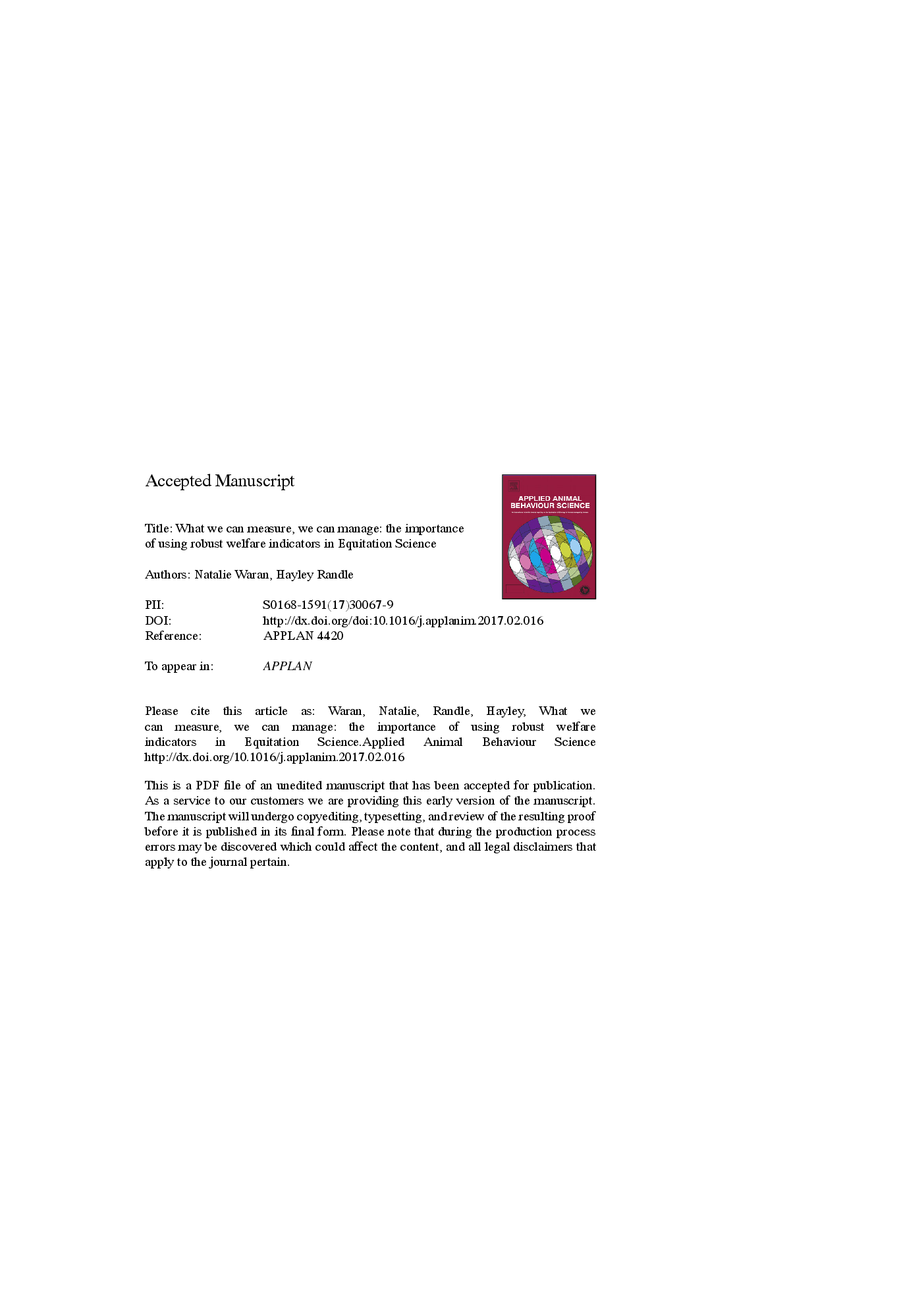ترجمه فارسی عنوان مقاله
آنچه ما می توانیم اندازه گیری کنیم، می توانیم مدیریت کنیم: اهمیت استفاده از شاخص های رفاه قوی در علوم انسانی
عنوان انگلیسی
What we can measure, we can manage: The importance of using robust welfare indicators in Equitation Science
| کد مقاله | سال انتشار | تعداد صفحات مقاله انگلیسی |
|---|---|---|
| 126829 | 2017 | 29 صفحه PDF |
منبع

Publisher : Elsevier - Science Direct (الزویر - ساینس دایرکت)
Journal : Applied Animal Behaviour Science, Volume 190, May 2017, Pages 74-81
ترجمه کلمات کلیدی
بیان رفتاری، اسب خوشحال احساسات مثبت، احساسات منفی، شاخص های رفاه،
کلمات کلیدی انگلیسی
Behavioural expression; Happy Horse; Positive emotion; Negative emotion; Welfare indicators;

